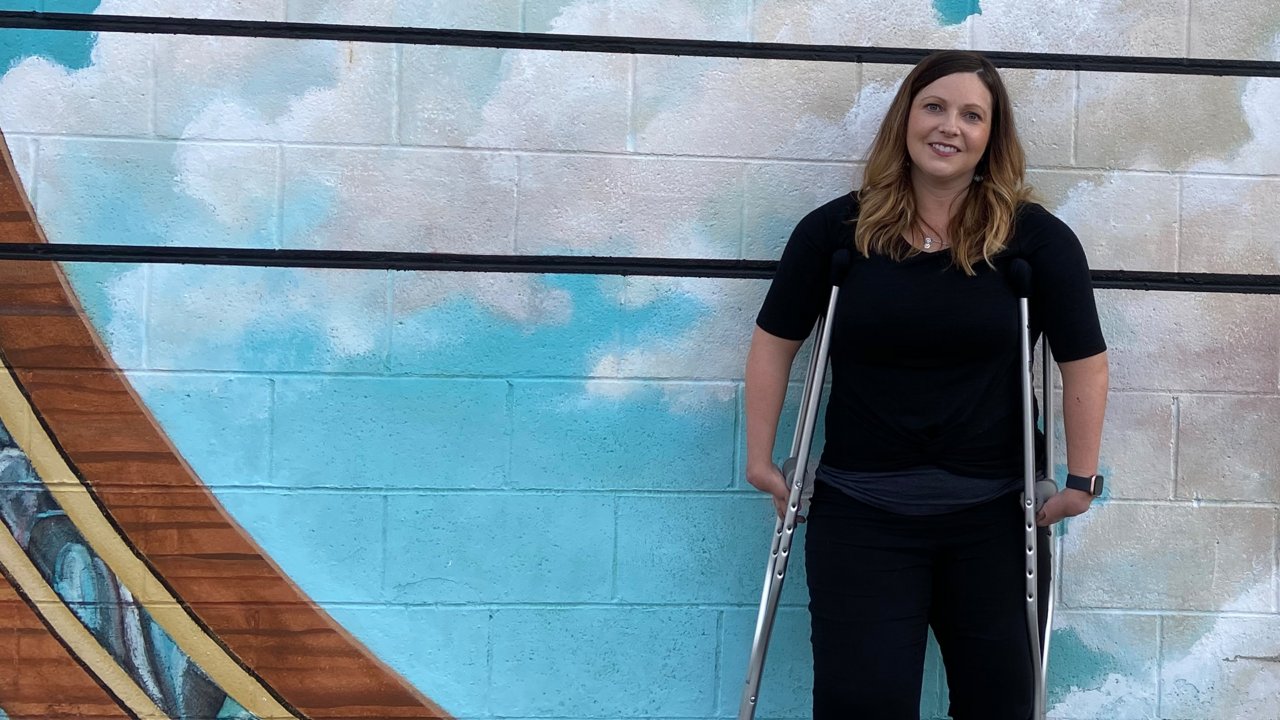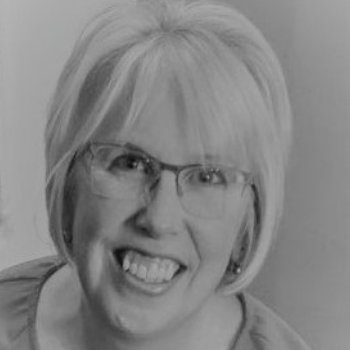Growing up with a disability, Rachel Schickowski had the best support system. Her parents encouraged her to learn, grow and navigate the world around her just like her brother.
So, when it was time to make her first career move, she knew she wanted to be part of a company that offered the same support. A company that allowed her to be herself.
That company was Rockwell Automation.
Early in the interview for an intern position, Rachel – now the Employee Engagement Manager – knew that the company’s culture would help her thrive in her career and her life.
Beyond disability
Rachel was born with arthrogryposis multiplex congenita (AMC), a condition that limits joint movement. As an adult that means her hands are bent, her legs aren’t as strong as they should be, and she uses crutches to get around.
“People were immediately friendly and helpful,” Rachel said, “and at the end of the day, no one had asked me if I had broken my leg. That might seem small, but to me that means that people saw me first, not my disability.”
That was a rarity for Rachel, who spent much of her youth watching from the sidelines. Many of the things she wanted to do she simply could not, and schools did not yet have robust adaptive programs to help a student who, for example, wanted to play drums but could not hold the drumstick.
Multiple surgeries and long hospital stays made her adaptable to unknown environments and able to easily make friends with patients, nurses, and doctors. Rather than fearing big things like being sick, Rachel worries about simple things – like a long walk down a busy sidewalk with people scurrying to get by the woman in their way.
Beyond labels
Rachel knows how AMC has influenced her family and friends; she is learning how it’s influenced her colleagues and peers.
“At work I know that I am different. My disability is obvious,” Rachel says. “At first, I did not want to join our employee resource group ROKability, even though its focused on helping people and families reach their full potential through inclusion, representation and access to accommodations, because it felt like a label.”
But then Rachel met some of the members and realized that, “They were focused on being more human and sharing stories, and it makes me feel like I don’t need to hide my humanness and flaws. We can be ourselves. The more we demonstrate this, the easier it is for everyone to be empathetic, more willing to listen, and truly bring our authentic selves to work.”
While the pandemic has changed Rachel’s life in a few difficult ways, the ability to work from home was positively influenced her life.
“In my work I collaborate with leaders and employees to improve our engagement and our culture, and that means I’m often presenting to large groups. That poses mobility challenges, like navigating big lecture halls. I’d be so overwhelmed by the physical challenges that it would cloud my head,” explains Rachel. “Through technology, I can now present to hundreds of people from the comfort of my home office chair.”
Stripping away the physical stress has allowed Rachel to excel at public speaking, improving her confidence and her own engagement.
“I do my best work when I’m real, honest and authentic. When I do that, the best things happen to me,” she says. “And I am thankful that so many years ago, I had that great first interview that previewed what this culture would provide to me. There are people with disabilities who do not know where to work. I am so grateful for our company culture and the opportunities I’ve had here to be myself, to be a resource, and to use the resources offered to me.”
Published October 14, 2020


